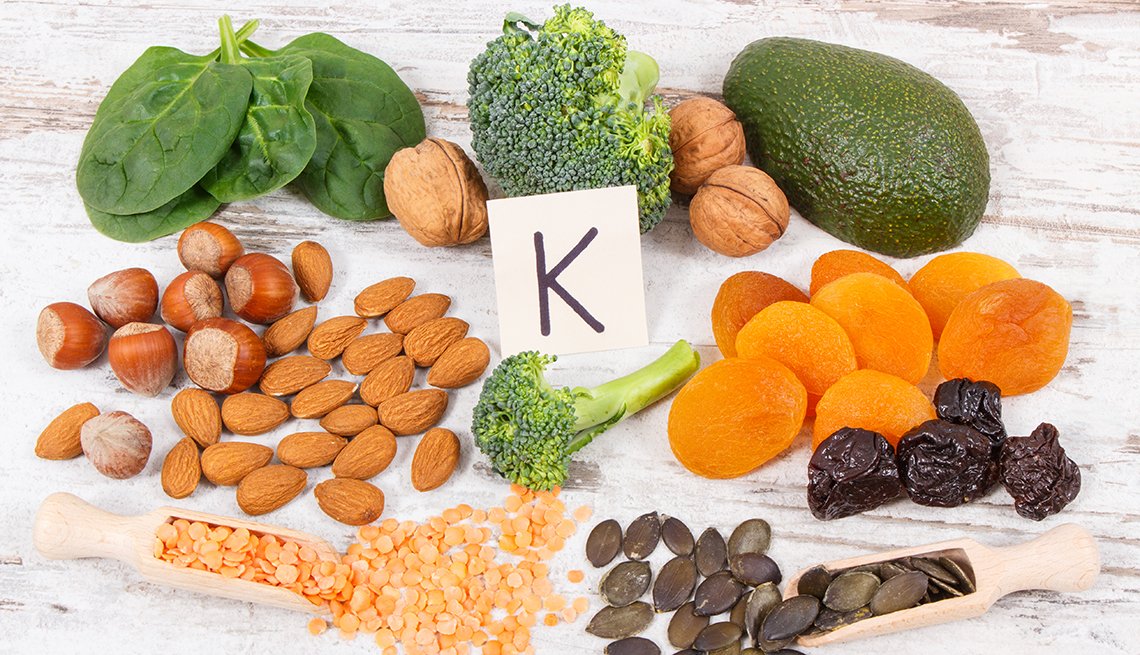- Empty cart.
- Continue Shopping
How to Maintain Healthy Vitamin K Levels

Vitamin K is a fat-soluble vitamin that plays a crucial role in blood clotting, bone health, and overall well-being. Maintaining healthy vitamin K levels is essential for preventing bleeding disorders and promoting optimal bone density.
1. Dietary Sources of Vitamin K
One of the most effective ways to maintain healthy vitamin K levels is by incorporating vitamin K-rich foods into your diet. There are two primary forms of vitamin K:
a. Vitamin K1 (Phylloquinone)
Vitamin K1 is primarily found in green leafy vegetables and certain plant oils. Include the following foods in your diet to boost vitamin K1 intake:
- Kale
- Spinach
- Broccoli
- Brussels sprouts
- Swiss chard
- Collard greens
- Parsley
- Green peas
- Cabbage
- Asparagus
b. Vitamin K2 (Menaquinone)
Vitamin K2 is found in animal-based and fermented foods. It is also synthesized by gut bacteria. Include these sources in your diet to increase vitamin K2 intake:
- Fermented foods: Natto (fermented soybeans), sauerkraut, kefir, and certain cheeses contain vitamin K2.
- Animal products: Opt for grass-fed dairy, egg yolks, liver, and meat, as they contain higher levels of vitamin K2 compared to conventionally raised counterparts.
2. Supplements
If you have difficulty obtaining sufficient vitamin K through your diet, or if you have a medical condition that affects vitamin K absorption, supplements can be a viable option. However, it’s essential to consult with a healthcare provider before starting any supplementation regimen. They can determine the appropriate dosage based on your individual needs.
Vitamin K supplements are available in different forms, including vitamin K1 (phytonadione) and vitamin K2 (menaquinone). Your healthcare provider will recommend the most suitable form and dosage for your specific situation.
3. Balanced Diet for Absorption
Vitamin K absorption is influenced by dietary factors. To enhance absorption and utilization:
- Consume healthy fats: Vitamin K is fat-soluble, so eating foods with healthy fats, such as avocados, nuts, and olive oil, can aid absorption.
- Pair vitamin K-rich foods: Pair vitamin K-rich vegetables with fats, such as olive oil dressing on a spinach salad or butter on steamed broccoli, to maximize absorption.
- Consider vitamin K2: Incorporate vitamin K2-rich foods with calcium sources, as vitamin K2 helps direct calcium to the bones. This can be particularly beneficial for bone health.
4. Limit Interference with Medications
Certain medications can interfere with vitamin K metabolism. If you are taking anticoagulants (blood thinners) like warfarin, it’s essential to manage your vitamin K intake consistently. Too much or too little vitamin K can affect the medication’s effectiveness. Work closely with your healthcare provider to strike the right balance.
5. Monitor Vitamin K Status
Regular monitoring of your vitamin K status can help ensure you are maintaining healthy levels. If you have specific health concerns or conditions that may impact your vitamin K status, consult your healthcare provider for blood tests to assess your vitamin K levels.
6. Maintain Gut Health
The gut plays a crucial role in vitamin K metabolism, particularly in the production of vitamin K2 by gut bacteria. To support gut health and vitamin K production:
- Consume probiotics: Incorporate foods rich in probiotics, such as yogurt, kefir, kimchi, and kombucha, to maintain a healthy balance of gut bacteria.
- Fiber-rich foods: Include fiber-rich foods like whole grains, legumes, fruits, and vegetables in your diet to support gut microbiota.
- Avoid excessive antibiotic use: Overuse of antibiotics can disrupt gut flora, potentially affecting vitamin K metabolism. Use antibiotics only when necessary and under the guidance of a healthcare provider.
7. Lifestyle Factors
Certain lifestyle factors can influence vitamin K levels:
- Alcohol consumption: Excessive alcohol intake can impair vitamin K absorption and utilization. If you consume alcohol, do so in moderation.
- Smoking: Smoking has been associated with decreased vitamin K levels. If you smoke, consider quitting to improve overall health and vitamin K status.
8. Consult a Healthcare Provider
Individual vitamin K needs can vary based on age, health status, and other factors. Therefore, it’s crucial to consult a healthcare provider or registered dietitian to determine your specific requirements and ensure you are maintaining healthy vitamin K levels. They can provide personalized guidance, monitor your progress, and make recommendations accordingly.
In Conclusion, Maintaining healthy vitamin K levels is essential for overall health, as this vitamin plays a vital role in blood clotting and bone health. By incorporating vitamin K-rich foods into your diet, considering supplementation when necessary, and paying attention to lifestyle factors, you can ensure that your vitamin K levels remain within the optimal range. Regular consultation with a healthcare provider or registered dietitian will help you make informed decisions and promote your overall well-being.








